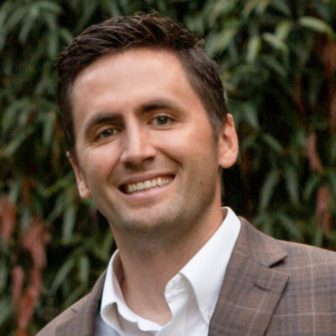Programs in Education
PAICE Global: Promoting Access, Innovation, and Clinical Effectiveness
PAICE Global (Promoting Access, Innovation, and Clinical Effectiveness) is partnering with medical systems in low-resource environments to grow their knowledge and skills to transform local care delivery processes to deliver efficient, equitable, high quality care.
Executive Summary
Stanford Medicine’s PAICE Global: Promoting Access, Innovation, and Clinical Effectiveness is a unique collaborative program that teaches quality improvement (QI) methodology to medical teams in order to empower them to transform local health care delivery. Using evidence-based QI methods, PAICE Global assembles diverse, cross-disciplinary teams to address inefficiencies and unique problems in complex healthcare environments around the world.
PAICE Global was started after a multi-year global learning collaborative led by Stanford Medicine in India from 2017-2020. After a few years of learning with institutions across the US, Australia, and India, India was able to build local quality improvement capacity in 10+ hospitals, enhancing patient care delivery for thousands of patients. They now function under a country-wide improvement hub called EQuIP India.
It is our intent to work with global partners to grow their own local improvement capability. We have discovered effective methods for applying quality improvement tools and creating a learning environment where clinical leaders can redesign how care is delivered in their local areas. With over 3-years of case study examples spanning the globe, we have developed a proven model that delivers quantifiable results in improving patient outcomes and engaging local leaders.
Contact PAICEOur Offerings for Improving Patient Care Delivery
Learning Collaboratives for Teams
An eight-month, eight-session project based collaborative for teams. Learning topics may include:
- Why Improvement Science in Healthcare?
- Understanding System Complexity
- Bringing a Structure to Problem Solving
- Understanding the Current State
- Identifying the Most Impactful Root Causes
- Testing Ideas using Iterative Problem Solving
- Effective Project and Team Management
- Using Measures to Drive Improvement
Learning Collaboratives for Leaders
A six-month, twelve-session, individual based collaborative. Learning topics may include:
- Creating an adaptive, learning culture in a complex system
- Understanding data and variation (statistical analysis)
- Developing an institution-based improvement structure
- Managing the psychological aspects of change
- Managing a large improvement project portfolio
- Improving presentation and teaching skills
- The role of evidence in quality improvement
- Publishing QI projects and leading QI research activities
Our Research
PAICE and its partners have produced many publications based on their quality improvement efforts. Click the link below to access the publications.
Learn MorePast PAICE Collaborations
India
In 2017, the first version of the 6-month training was offered by Stanford to 7 clinical teams representing 7 different palliative care institutions across India. Due to the success of team learning and project outcomes, a participant engaged Tata Trusts, a philanthropic foundation based in India, to fund the continuation of this work. Tata now supports alumni from these inaugural cohorts to serve as Medical Directors of Clinical Improvement for Palliative Medicine and Oncological Services in India.
Kenya
This partnership began in 2019, when the 6-month training was offered by Stanford to clinical teams representing 3 different clinical institutions near Nairobi.
Contact Us

Jake Mickelsen

Jake Mickelsen
Jake is a certified improvement practitioner with experience building healthcare quality improvement capability across the globe. He has developed improvement training programs, staff engagement platforms, and leadership organizational structures that have served major institutions such as Stanford University Medical Center in California, University of Kansas Medical Center, the All India Institute for Medical Sciences in New Delhi, and AIC Kijabe hospital in Kenya. Through these experiences he coached hundreds of health care improvement projects and witnessed the application of improvement methods for diverse healthcare challenges.
Contact Jake Mickelsen
Michelle DeNatale

Michelle DeNatale
Michelle DeNatale, MSc is the Executive Director of Operations and Strategic Programs for the Chief Medical Office at Stanford Health Care. Michelle is known for leading interdisciplinary teams to develop innovative solutions to improve clinical performance in hospital and ambulatory care settings to improve the value of patient-centered care. Her work at Stanford includes the creation of the Stanford Coordinated Care model for patients with ongoing chronic health conditions as well as the activation and facility design of over 14 specialty clinics including the Stanford Byers Eye Institute and Hoover Pavilion. She is the founding Administrative Director of the Stanford Clinical Effectiveness Leadership Training (CELT) and is a Global Health Fellow for Stanford Medicine Center for Innovation. Over the past 6 years she has worked to build clinical improvement collaboratives with improvement teams across India, Australia, Kenya and Ethiopia. Michelle has more than 12 years experience leading strategic planning and implementation initiatives within healthcare specializing in population health, health benefit design and physician engagement strategies. Michelle holds a Master’s of Science in Health Policy & Management from Harvard University.
Contact Michelle DeNatale
Karleen Giannitrapani

Karleen Giannitrapani
Dr. Karleen Giannitrapani is the Co-Director of the VA Quality Improvement Resource Center for Palliative Care, supporting VA Geriatrics and Extended Care programs nationally, and a Core Investigator at the VA Center for Innovation to Implementation. She is also an Instructor at the Stanford University School of Medicine and Stanford “d.school”. Her research focuses on improving care quality and processes for patients facing serious illness. She has a PhD in Health Policy and Management, a Masters of Public Health and a Masters of Arts in African Studies.
Contact Karleen Giannitrapani
Karl Lorenz

Karl Lorenz
Dr. Karl Lorenz, MD MSHS is a general internal medicine and palliative care physician, and Section chief of the VA Palo Alto-Stanford Palliative Care Program. Formerly at the VA Greater Los Angeles, Dr. Lorenz directed palliative care research at the VA Center for Innovation to Implementation and served on the faculty at the UCLA School of Medicine. Dr. Lorenz is a member of the VA’s national Hospice and Palliative Care Program (HPC) leadership team, director of the operational palliative care Quality Improvement Resource Center (QuIRC), and adjunct facility staff member at RAND. Dr. Lorenz’s work and leadership has been influential to the field of palliative care research. Under Dr. Lorenz’s leadership, since 2009 the Quality Improvement Resource Center (QuIRC) has served as one of three national leadership Centers responsible for strategic and operational support of the VA’s national hospice and palliative care programs. QuIRC develops and implements provider facing electronic tools for the VA’s national electronic medical record to improve the quality of palliative care. In that role, Dr. Lorenz participates with the national leadership team in strategic planning, policy development, and providing resources to support operational efforts. Dr. Lorenz has contributed to the field of global palliative care, serving the World Health Organization in its development of Palliative Care for Older People and leading methods for Palliative Care Essential Medications.
Contact Karl Lorenz